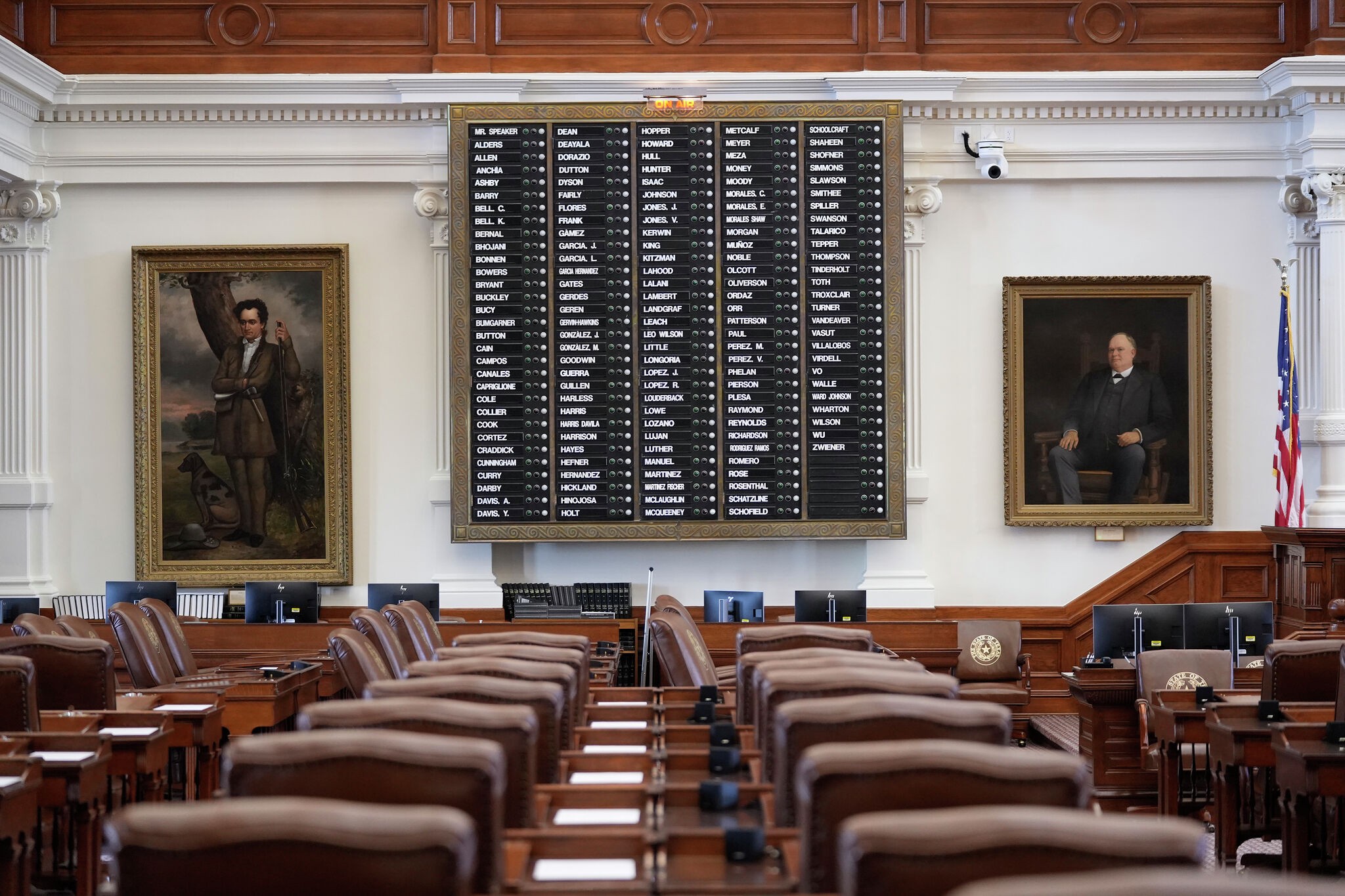politics
Texas Poll Reveals Shifting Voter Sentiment and Trump's Declining Support
New Texas poll highlights early favorites in U.S. Senate race, but deeper findings show Trump support softening and shifting voter sentiment heading into 2026.
Published October 12, 2025 at 9:45am by John C. Moritz

The House Chamber at the Capitol in Austin, Friday, Aug. 15, 2025, shortly before the session began.
Jay Janner/Austin American-Statesman
The headlines that came out of the statewide poll conducted by two Texas universities focused primarily on the upcoming Democratic and Republican primaries for U.S. Senate, and most of the best-known candidates or would-be candidates in both parties had little difficulty spinning their reactions to keep base voters — and, just as importantly, their donors — engaged with a month to go before filing for office starts.
For Attorney General Ken Paxton, he can say he's still in the lead on the Republican side. For four-term U.S. Sen. John Cornyn, he can claim that the wide gap between him and Paxton in earlier polls has narrowed to a single percentage point. For U.S. Rep. Wesley Hunt of Houston, the poll was conducted before he had even announced his candidacy, yet he still drew support from nearly one-fourth of GOP respondents.
Among Democrats, former U.S. Rep. Colin Allred, the 2024 Democratic nominee for Senate, performed slightly better than other Democrats in hypothetical general election matchups with all the Republicans. State Rep. James Talarico can boast that he polled stronger than Allred among Democratic respondents. Two Democrats not even in the race — former U.S. Rep. Beto O’Rourke and current U.S. Rep. Jasmine Crockett — would be immediate frontrunners should either decide to run.
And all of the Republicans in the poll outperformed all of the Democrats, according to the survey conducted Sept. 19 through Oct. 1 by the University of Houston and Texas Southern University.
But because early candidate-preference polls rely on responses from voters who might not yet be paying close attention to the 2026 midterms, the results are on softer ground than they might appear. The more telling data may be in the less flashy questions farther down the list—those that looked at voters’ attitudes regardless of specific candidate names.
Many of those attitudes involve how Texans feel about President Donald Trump, and the findings are significant because midterms are often viewed as referendums on the sitting president. The poll found that more voters than not still support Trump, but not as strongly as when they helped re-elect him in November 2024.
For instance, while Trump carried Texas with a comfortable 56% of the vote against Democrat Kamala Harris last year, only 49% said they would vote for him again if given the chance. The president lost ground in virtually all subgroups surveyed: down 20 percentage points among independents, 16 among Gen Z voters and 10 among voters who backed him despite identifying as Democrats.
Among Latino voters — long considered reliable for Texas Democrats but who defected in droves to Trump last year — support for the president dropped 12 percentage points, the poll found.
"While Trump’s advantage over Harris among these Latino voters in 2024 was 8 percentage points, if these Latino voters could vote again for president, Harris would lead Trump by 11 percentage points among Latinos, marking a 19 percentage point shift," according to the explanation by the poll managers.
That could spell trouble for the Trump-engineered congressional redistricting plan enacted this summer to give Republicans five additional winnable U.S. House seats, the poll managers said. At least two of those districts are anchored partly in heavily Latino South Texas. Republicans in 2024 were ecstatic when Trump won nearly every county along the Rio Grande and his coattails helped them flip a U.S. House district and a state Senate district.
That lingering euphoria emboldened Gov. Greg Abbott and legislative Republicans when they redrew the congressional map mid-decade over Democratic objections. And it all but erased the sting of 2018, when Democrats flipped a record 12 Texas House seats.
Recall that 2018 was the midterm election during Trump’s first term. Even though he carried Texas in 2016, the flipping of those House seats — along with three close statewide races in which Democrats outperformed expectations — should be a cautionary tale heading into the next cycle.
And that means voters in both primaries should choose carefully when deciding among the candidates in the U.S. Senate race.

